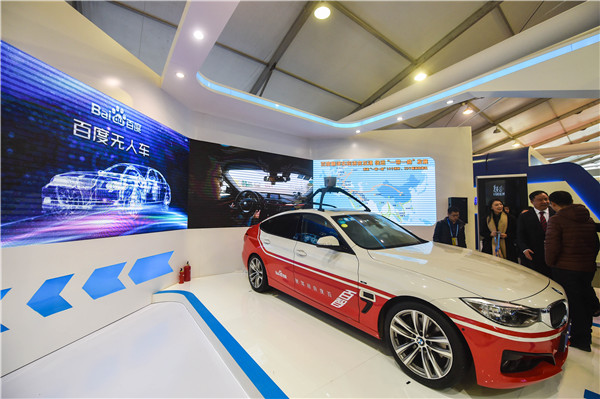
"Such a high price will only be feasible at the testing stage, it will definitely need to be reduced substantially when being commercialized in the future," said Wang Jin, who runs Baidu's autonomous driving division, quoted in Shanghai's The Paper in December.
By using the word "substantially", Wang was making it clear that he expects the price of lower-resolution guidance models to fall by about 90 percent, not the 50 percent sugg-ested by suppliers such as Velodyne Acoustics.
In March, Wang told the media that the company is cooperating with suppliers and hopes to reduce the cost of the radar system to about 20,000 yuan-2.85 percent of the cost of the LiDAR system used in December-in three to five years, by which time Baidu will begin mass production of driverless cars.
So far, Baidu has managed to reduce the cost to less than 200,000 yuan (less than one-third of the original cost), he added.
According to Yu, from ResearchInChina, although Chinese companies have no advantages in terms of the core technologies, some of the larger companies have one major edge-they have plenty of money to invest in development.
"From a technological point of view, in general Chinese companies are lagging five years behind their international rivals, most of whom are still buying radars, cameras and control systems from suppliers in the U.S., Europe or Japan, which means it would be difficult for them to lower the cost to a level that's practical for commercialization.
"But with abundant funding, we have seen active cross-boundary mergers by Chinese companies in an attempt to atone for the technological shortfalls," he said.
In May last year, Zhejiang Asia-Pacific Mechanical & Electronic Co, a supplier of braking systems, initiated a plan to raise 1.2 billion yuan to finance the development of self-driving technologies. In April, after a series of mergers and acquisitions, the company announced breakthroughs in a number of core technologies, together with a new plan for 2.3 billion yuan of additional investment.
It also set itself the goal of successfully developing automatic driving technology by 2023.
In February, Ningbo Joyson Electronic Corp, a major auto-electronic products manufacturer in Zhejiang province, spent $1.1 billion to acquire two leading suppliers of automotive components-Key Safety Systems in the United States, and Germany's TechniSat Automotive.
On April 22, Baidu announced that it had established a self-driving car team in Silicon Valley, California. The team includes experts in machine learning and hardware, along with software engineers across a variety of technical domains, from robotics and computer vision to on-board computers and sensors. The company plans to expand the team to more than 100 researchers and engineers by the end of this year.
The driving force behind the moves to develop driverless cars, irrespective of cost, is the potential profit to be made from China's massive auto market.
A survey by Boston Consulting Group in April last year showed that China will soon corner more than 25 percent of the driverless car market, which is expected to hit 12 million units globally by 2035.
Meanwhile, a recent report by Roland Berger, a global strategy consultancy, showed that Chinese car owners are much more open to unmanned cars than Europeans and people in the U.S..
As many as 96 percent of Chinese drivers stating that they would consider an autonomous vehicle for almost all everyday driving, whereas in the U.S. and Germany, the figure was 58 percent.
"Chinese people are probably the world's most adventurous consumers-they are always ready to try new things. Just look at how smartphones swept the country overnight and you can predict what will happen to the market for autonomous cars," said Wang Yong, founder of VVpinche, a cab-hailing company in Beijing based on the model popularized by Uber and Didi Chuxing.


















































